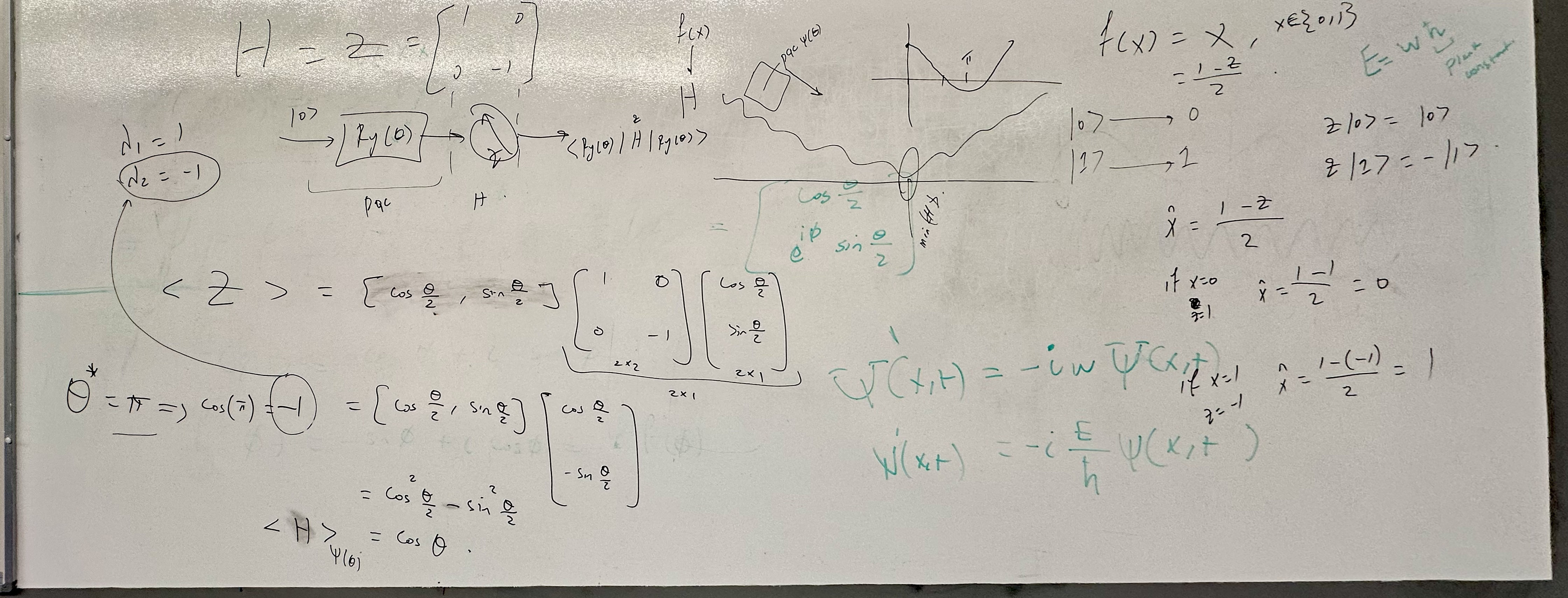COSC 794: Quantum Machine Learning

This graduate-level course provides an introduction to the foundations and practical aspects of Quantum Machine Learning (QML). The course aims to equip students with both the theoretical background and hands-on experience necessary to understand and explore the intersection of quantum computing and machine learning.
Course Abstract
Quantum Machine Learning (QML) is an emerging field at the intersection of quantum computing and data-driven artificial intelligence. This course introduces the fundamental principles of quantum computing and explores how quantum mechanics can be harnessed to develop new machine learning algorithms. We will cover essential quantum algorithms, mathematical foundations such as vector spaces and complex numbers, and examine recent advances in QML applications.
Students will gain hands-on experience with quantum programming frameworks and apply quantum concepts to implement simple machine learning models.
Topics Covered
Topic 1: Introduction to Quantum Machine Learning
- Overview of quantum computing and classical machine learning.
- Motivation: Why quantum machine learning?
- Setting up a quantum machine learning environment (e.g., Qiskit, Pennylane).
Topic 2: Mathematical Foundations for Quantum Computing
- Vector spaces and complex numbers.
- Dirac notation (ket-bra).
- Bloch sphere representation.
- Quantum gates and single qubit manipulations.
Topic 3: Multi-Qubit Systems and Entanglement
- Tensor product of qubits.
- Entanglement and Bell states.
- Measurement and quantum circuits.
Topic 4: Quantum Naive Bayes
- Classical vs. quantum Naive Bayes.
- Encoding classical data into quantum states.
- Building a quantum classifier using amplitude encoding.
Topic 5: Quantum Algorithms in Machine Learning
- Deutsch’s algorithm: introduction and implications.
- Grover’s algorithm and its application in search and optimization problems.
Topic 6: Data Encoding Techniques
- Basis encoding, amplitude encoding, and angle encoding.
- Trade-offs between encoding strategies.
- Circuit depth and qubit requirements.
Topic 7: Components of a Quantum Classifier
- Quantum feature maps.
- Quantum measurement schemes.
- Decision rules and hybrid quantum-classical classification.
Topic 8: Linear Models and Quantum Support Vector Machines
- From classical SVMs to quantum-enhanced SVMs.
- Quantum kernels and inner product estimation.
- Applications and experimental demonstrations.
Topic 9: Variational Quantum Eigensolver (VQE)
- Parameterized quantum circuits.
- Classical-quantum optimization loop.
- Applications to both physics and ML settings.
Topic 10: Advanced Topics Through Course Projects
- Barren Plateau phenomena and trainability challenges.
- Quantum reinforcement learning (QRL).
- Quantum auto-encoders and data compression.
- Hybrid models with amplitude amplification.
Instructor: Dr. Omar Alhussein
For updates and course materials, please refer to the Teaching page.